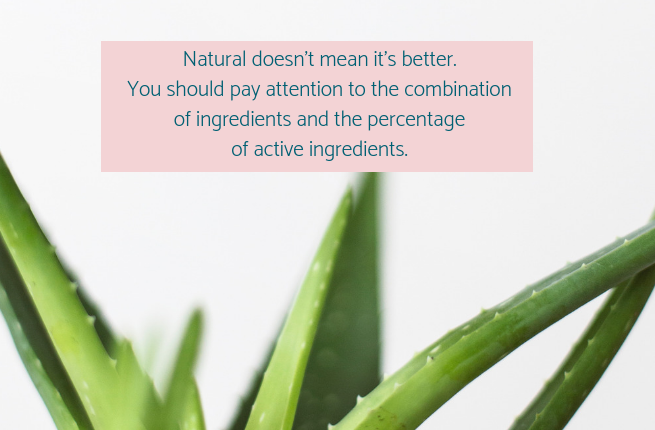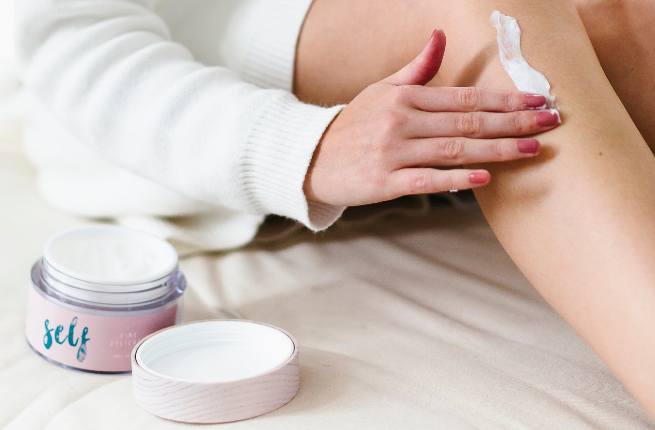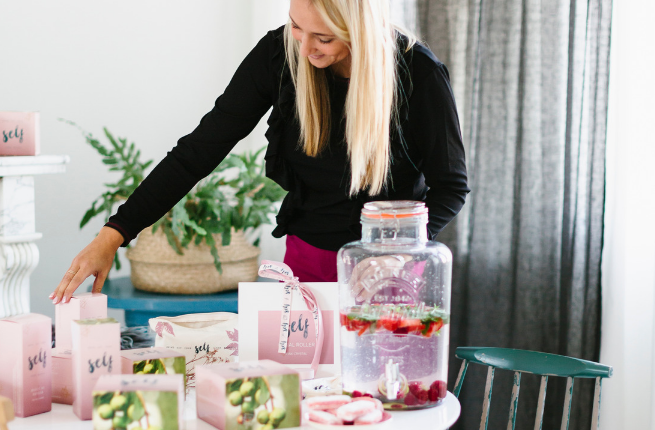The last few years more and more companies are getting into the natural trend. They release all sorts of new natural products and even go as far as only using ingredients provided by Mother Nature. It’s a trend I can only be delighted with, as everything you put on your skin should be edible as well.
Your skin is the largest organ, harmful substances can damage the skin’s barrier and can be very bad for you. But is all natural care better? And can your favorite day cream contain absolutely no synthetic substances? Let me answer some of the most frequently asked questions for you.
What are synthetic substances and are they harmful?
Synthetic means laboratory designed substances. But even if a product is all natural or all synthetic, both are subject to strict regulations. They get tested in the same manner and that doesn’t mean natural is safer. A synthetic product doesn’t have to be a 100% synthetic and can contain natural ingredients. Synthetics simply get used because they’re cheaper, and from a business point of view this is more interesting.
But are all synthetic substances harmful? Absolutely not, but if you look at it on the long term you’re better of going natural. They’re just better for your skin and health.
Irritating ingredients to avoid
Mineral oils / ingredients based on petroleum: ingredients made out of the waste of oil can cause skin problems such as acne and wrinkles.
Alcohol: a high percentage of alcohol can irritate and cause the skin to dry out.
SLS/ SLES (Sodium Laurel / Laureth Sulpate): synthetics found in shampoo and soap that cause the foaming. It can cause itching, allergic reaction and irritations to the eyes. It’s a misconception that foaming soaps cleanse better, you’re better of going with products that don’t contain any SLS.
Microbeads: Did you know many scrubs and shampoos contain tiny plastic particles? They can be as bad for you as they are for the environment!
Synthetic scents / perfume: these synthetics can be the cause of many allergic reactions, irritations, headaches and can be associated with hormonal disruption.
Is natural better?
Let’s make it clear, natural doesn’t mean better for your skin. A lot of companies play into that trend but they’re not afraid of being misleading. The term natural is not a protected domain, so everyone can use it. You’d be surprised at how many of the available products labeled as natural are actually 100% natural. The term can be used even if it only contains 1 natural ingredient! Besides, most natural ingredients undergo so many manipulations before they end up in the completed products, nothing natural even remains.

Things to look out for
Do you want to be sure that your skin care is natural, then you’d better take a close look at the list of ingredients. Do your research and look out for misleading descriptions. Here are a few things to consider:
Not everything that’s natural is good for your skin
Nature has a lot of nice things to offer, think of all the plant extracts filled with antioxidants, vitamins and fatty acids. But there’s also a lot of ingredients that don’t make our skin happy. Lavender, mint and tea tree oil are some of the natural substances known to irritate the skin.
The percentage of ingredients that actually work
The power of the products lies in the percentage of active ingredients. Skin care products can contain a lot of good stuff, but if the percentage is low they offer no benefits for your skin. Check if the ingredients in your products are pure.
Don’t believe the misleading descriptions
There are different terms like natural identical and naturally derived to mislead the consumer. A natural identical substance is synthetic by nature, make sure to check out the labels to understand your favorite products.
The 100% natural claim
Do you want to be sure your products are 100% natural? Check out the packaging. Companies are only allowed to claim the products are 100% natural if there’s no synthetic additives. This counts for everything: the scent, ingredients, conservatives…
The combination of ingredients
The power lies in the combination of ingredients, they have to form a strong team. Certain ingredients reinforce one another and that’s the power of SELF: all active ingredients form a good team, it’s a strong formula!

Can I be allergic to natural ingredients?
Yes you can be allergic to natural ingredients such as coconut oil, shea butter of essential oils. But there’s a big difference between certain ingredients, the chances of allergic reactions can be higher with some. One piece of advice I can offer you: test the products on the inside of your elbow, this way you can check if you are allergic to the product.
Why should you choose for SELF’s natural products?
SELF came into existence after a long search for the purest ingredients nature had to offer, with a proven benefit for the skin. I researched the ingredients and came across combination you can find in every SELF product: coconut oil, argan oil, aloe vera, macadamia and mandarin & geranium oils.
Why should you choose SELF?
It’s a pure product, it contains ingredients with a scientifically proven benefit. And contains no harmful ingredients, only the best of what Mother Nature has to offer.
It’s vegan and hasn’t been tested on animals.
The products contain a high percentage of active ingredients, so it’s a real source of vitamins that provide the skin with intense nutrition.
The power lies in the combination of ingredients. All active ingredients form a strong team and reinforce each other.
These products are designed for the sensitive and problematic skin, but due to the mild formula, they can be used with every type of skin! From a dry skin, mixed skin, baby skin or the mature skin.

Conclusion
Synthetic is not always harmful, but nature has a lot of nicer things to offer. In that case why should you use synthetic? My opinion is that pure and natural does the job so much better and offers a higher percentage of active ingredients. On the long term natural ingredients are better for your health and skin.
Have you got any more questions? Feel free to send me an email at team@nauralself.eu









